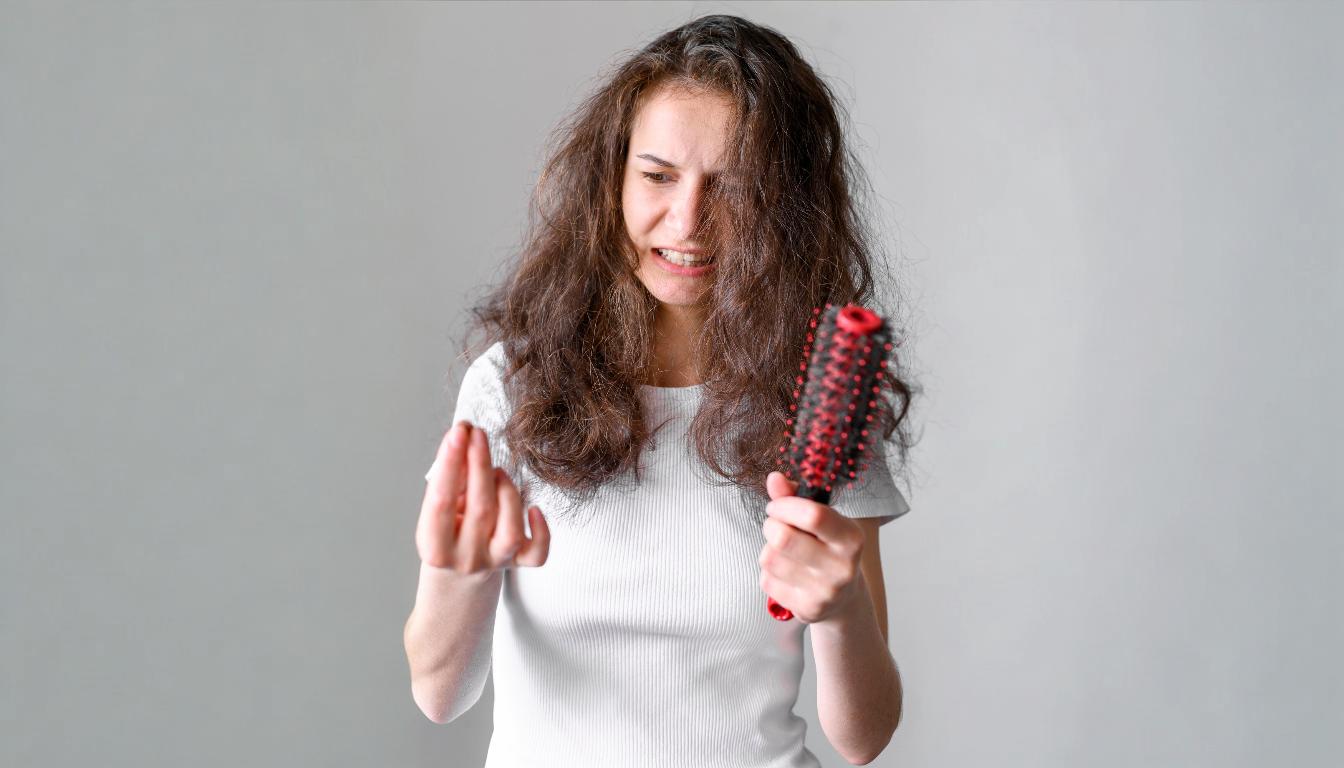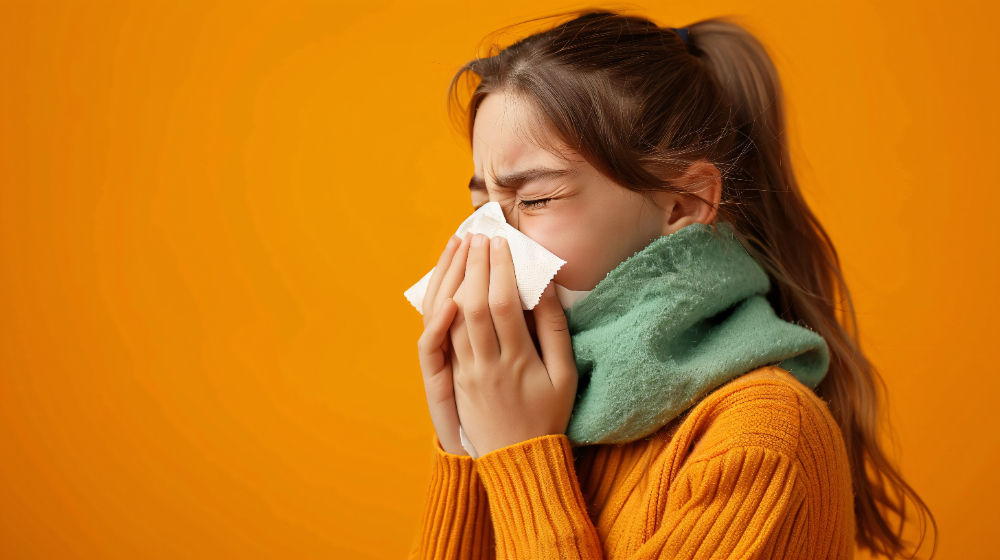Mental stress profoundly affects overall health, including hair growth. The intricate relationship between stress and hair loss involves physiological disruptions that alter the normal hair growth cycle. This article delves into the types of stress-induced hair loss, the underlying mechanisms, the psychological implications, and practical strategies for management and prevention. Stress is a significant contributor to three primary types of hair loss: telogen effluvium, alopecia areata, and trichotillomania.
Types of Stress-Related Hair Loss
Stress-related hair loss is a common condition that can manifest in various forms, each with unique triggers and symptoms. The most notable types include telogen effluvium, alopecia areata, and trichotillomania, all of which are influenced by physical or emotional stressors. By understanding the underlying causes and adopting the right strategies, it’s possible to reduce hair loss and promote healthy regrowth.
1) Telogen Effluvium
Telogen effluvium is a temporary hair loss condition caused by physical or emotional stress, making it one of the most common forms of stress-related hair shedding. Hair growth occurs in cycles, including the anagen (growth), catagen (transition), and telogen (resting) phases. Stress disrupts this natural cycle, causing a significant number of hair follicles (up to 70%) to prematurely enter the telogen phase, leading to diffuse hair shedding. This shedding often becomes noticeable about three months after the triggering event. Common triggers include physical stressors like illness, surgery, childbirth, or nutritional deficiencies, emotional stressors such as grief or anxiety, and medical factors like hormonal imbalances, certain medications, or rapid weight loss. Symptoms typically involve sudden, noticeable shedding and diffuse thinning across the scalp without localized bald patches, with increased hair visible on pillows, in showers, or on brushes. Telogen effluvium is usually self-limiting, and hair regrowth occurs within 3–6 months once the underlying stressor is resolved.
Management focuses on addressing the root cause, such as stress management or correcting nutritional deficiencies, alongside maintaining a balanced diet rich in vitamins and minerals to support recovery. Over-the-counter treatments like biotin supplements may also promote hair health.
2) Alopecia Areata
Alopecia areata is an autoimmune disorder where the body’s immune system attacks healthy hair follicles, leading to hair loss. Emotional stress is a known trigger, along with genetic predisposition, environmental factors, and associated autoimmune conditions like thyroid disease or vitiligo. The immune attack causes inflammation and disrupts hair production, resulting in patchy hair loss rather than the diffuse thinning seen in telogen effluvium. Symptoms include sudden round or oval patches of hair loss on the scalp, beard, or body, with severe cases leading to complete scalp (alopecia totalis) or body hair loss (alopecia universalis). Prognosis is unpredictable; while some experience spontaneous regrowth, others require treatment and may face recurrent episodes.
Management involves medical treatments like corticosteroids, topical immunotherapy, or minoxidil to stimulate regrowth, along with stress management techniques to reduce flare-ups. Emotional support from peers or support groups can help individuals cope with the psychological effects.
3) Trichotillomania
Trichotillomania, or hair-pulling disorder, is a psychological condition characterized by the compulsive urge to pull out hair, often triggered by stress or anxiety. It is classified as a body-focused repetitive behavior (BFRB), where hair-pulling offers temporary relief but can result in physical damage over time. Common triggers include high stress, mental health conditions like anxiety or depression, and impulsive tendencies driven by boredom or frustration. Symptoms involve recurrent urges to pull hair from the scalp, eyebrows, or other areas, leading to bald patches and feelings of shame or distress. Without treatment, the condition can cause permanent follicular damage and scarring.
Management includes psychological therapy, such as Cognitive Behavioral Therapy (CBT) to identify triggers and Habit Reversal Training (HRT) to develop alternative behaviors. Medications like antidepressants may address underlying issues, while support groups help reduce isolation. Behavioral tools, such as fidget devices or wearing gloves, can also curb the habit. Early intervention is crucial to prevent long-term effects.
Mechanisms Behind Stress-Induced Hair Loss

Stress disrupts hair growth primarily through hormonal imbalances. Elevated cortisol levels—commonly referred to as the “stress hormone”—interfere with the hair growth cycle by prolonging the resting phase of hair follicles, resulting in increased shedding.
Chronic stress is particularly detrimental. Research indicates that prolonged exposure to stress hormones can impair hair follicle stem cells, diminishing their ability to regenerate hair. Studies on animals have demonstrated that chronic stress reduces hair growth and extends the resting phase of follicles. While physical stressors, such as illness or surgery, can contribute to hair loss, the effects of emotional stress are often subtler but more persistent.
The Psychological Toll of Hair Loss
Hair loss can profoundly impact mental health, creating a vicious cycle in which stress exacerbates hair loss, and the resulting hair loss intensifies stress. Many individuals report experiencing anxiety, depression, and low self-esteem due to changes in their appearance.
Women, in particular, are disproportionately affected by the psychological impact of hair loss. Studies show that women under high emotional stress are more likely to experience hair thinning than those with lower stress levels. This underscores the importance of addressing both the psychological and physical dimensions of hair loss.
Coping with Stress-Related Hair Loss

Stress-related hair loss can be distressing, but with a comprehensive approach, it is possible to manage and even reverse the condition. The key lies in addressing the underlying stressors, improving overall well-being, and seeking professional help when needed. Here’s an in-depth look at how to cope effectively:
- Stress Reduction Techniques
Stress reduction is foundational to managing hair loss. Chronic stress elevates cortisol levels, disrupting the hair growth cycle. By engaging in relaxation practices, individuals can reduce cortisol levels and promote hair health.
- Yoga: This ancient practice combines physical postures, breathing exercises, and meditation. It helps calm the mind and reduce stress, while also improving circulation, which benefits hair follicles.
- Meditation: Regular meditation helps control stress responses by fostering mindfulness and relaxation. It can reduce anxiety and lower cortisol levels, creating a more conducive environment for hair growth.
- Deep Breathing Exercises: Techniques like diaphragmatic breathing or alternate nostril breathing can quickly reduce stress and lower heart rate. These methods are particularly effective for managing acute stress episodes.
- Diet and Nutrition
Hair health is closely linked to dietary habits. Stress often depletes the body of essential nutrients, which can exacerbate hair loss. A nutrient-dense diet can help restore balance. Hair is primarily composed of keratin, a protein, making lean proteins like chicken, fish, eggs, and legumes essential for hair strength. Iron, critical for oxygenating hair follicles, is found in spinach, lentils, and red meat, preventing thinning caused by deficiencies. Key vitamins further enhance hair health: biotin (Vitamin B7) strengthens hair and boosts growth (nuts, seeds, eggs), Vitamin D supports follicle cycling (sunlight, fatty fish, fortified milk), and Vitamin E protects follicles from damage (avocados, almonds). Zinc, essential for tissue repair, is sourced from shellfish and pumpkin seeds, while omega-3 fatty acids (salmon, walnuts) nourish the scalp and promote vitality.
Hydration is equally crucial, as water facilitates nutrient transport and keeps the scalp moisturized. Reducing stimulants like caffeine, sugar, and alcohol helps maintain hormonal balance and reduces stress, mitigating its impact on hair. A holistic approach involving nutrient intake, stress management, and hydration ensures optimal hair health.
- Physical Activity and Sleep
Regular exercise and sufficient sleep are crucial for managing stress and promoting overall well-being, both of which significantly impact hair health.
Physical Activity: Exercise releases endorphins, natural mood enhancers, which help reduce stress. Activities such as brisk walking, jogging, swimming, or dancing improve circulation, ensuring that hair follicles receive essential nutrients. A daily routine of at least 30 minutes also lowers cortisol levels, positively influencing the hair growth cycle.
Sleep Hygiene: Sleep is vital for the body’s repair processes, including hair follicle restoration. Stress hormones decline during sleep, allowing the body to rejuvenate. Adults should aim for 7–8 hours of quality sleep each night. Enhancing sleep quality involves maintaining a cool, dark, quiet environment and avoiding screens before bedtime to create a restful atmosphere.
The relationship between mental stress and hair loss highlights the importance of holistic health management. Stress-induced hair loss requires a dual focus on mental well-being and physical care. By adopting effective stress management strategies, maintaining a balanced lifestyle, and seeking professional advice when needed, individuals can improve their overall health and support hair regrowth.




